
From Dan's Website:
Dan is a mediator living with bipolar disorder and the founder of MH Mediate. He has spent the past decade working to improve how people communicate about mental health. Dan has been a support group facilitator with the Mood Disorder Support Group of NYC, a speaker with the National Alliance on Mental Illness, and a Mental Health First Aid training instructor with the NYC Department of Health and Mental Hygiene. He studied mediation at the NY Peace Institute, where he sat on the Mediator Advisory Board and mediated criminal court, youth-involved, school, and community cases. A sought-after speaker and trainer in mental health communication and conflict resolution, Dan has presented workshops at many conferences and led MH Mediate trainings in over a dozen states. He holds a masters degree in Mental Health from the Johns Hopkins Bloomberg School of Public Health and a bachelors degree from the Wharton School of the University of Pennsylvania. Dan has delivered programs for the Department of Interior, the NYC Department of Health and Mental Hygiene, the University of Notre Dame, the Wyoming Department of Agriculture, the National Alliance on Mental Illness, the Association for Conflict Resolution, the Association for Professional and Family Mediators, Cardozo School of Law, and many other organizations. He is excited to see conflict resolution become a bigger part of mental health across the United States.
0 Comments
Article by Steve Johnson Edited by Maureene Danielle Post design by Christy Zigweid Image by tiyowprasetyo via Pixabay CC made using @WordSwagApp In the U.S., suicide is the 10th leading cause of death, and it claims “more than twice as many lives each year as homicides.” There are certain behaviors and situations that can add to suicidal thoughts. Losing a loved one, losing a job, or breaking up with a loved one are just a few situations a person may find themselves in that add unneeded stress to their life. Drug abuse, addiction, or mental illness may also add to, or be a part of, suicidal thoughts and feelings. There are many things you can do to help a struggling suicidal individual, but if you’re struggling with how to help someone you care about, these five ideas can help you be there for your loved one in a meaningful way. 5 Ideas to Help a Friend or Loved One Considering Suicide
Contacting Professionals Support is available through a variety of organizations, and there may be several local or national services available to meet various aspects of an individual’s complex mental health condition. There are places for addiction, drug abuse, many different types of mental illnesses, and suicidal thoughts, and it’s possible that an individual may require assistance from more than one organization. One way to start seeking help is to call the National Suicide Prevention Line at 1-800-273-TALK (8255). They can point you in the right direction to get the help that your friend or family member needs. Don’t forget that if someone is in imminent danger, call 911 immediately. About the Author Steve Johnson has always been dedicated to promoting health and wellness in all aspects of life. Studying in the medical field has shown him how important it is for reputable health-related facts, figures, tips, and other guidance to be readily available to the public. He created PublicHealthLibrary.org with a fellow student to act as a resource for people’s overall health inquiries and as an accurate and extensive source of health information. When he isn’t hard at work in his studies, Steve enjoys playing tennis and listening to his vintage record collection.
Guest post by Annalise Sinclair Editor and blog post designer: Christy Zigweid Photo made using @WordSwagApp The semester of college right after I was diagnosed with bipolar disorder was the worst of my life. I was in a terrible relationship with a real loser. I was on a highly competitive, world-ranked winter guard team, which I never, ever felt good enough for. I stupidly decided to take on way too many credits in school. I had just joined my sorority and wasn’t prepared for the time, energy, or self-commitment. I was struggling to figure out my identity as someone saddled with a mental illness. Essentially, I ran myself into the ground and then decided to dig a little bit deeper, just for good measure. Somehow in the middle of all this, I found some time to adopt a kitten. I grew up around animals and had convinced myself that if I got a kitten, everything would magically get better. My aunt (another crazy cat lady) took me to the local Humane Society to “look around,” knowing fully that I couldn’t leave without my own ball of fur. So insert Addy, the cutest, spunkiest kitten you’ll ever meet. Photo courtesy of Annalise Sinclair Unfortunately, getting a kitten didn’t solve all of my problems; shocker, I know. I found myself sinking deeper and deeper into depression, which felt impossible to overcome. I felt like my only out would be taking my own life. Living each day was so hard and all I wanted was some peace. Suicide seemed so serene, like I could finally get some rest. I planned everything out: I cleaned my apartment so no one would have to bother, figured out my method (something simple and painless), and wrote a goodbye to everyone that I loved. However, there was one problem. I had no idea how long it would take for someone to realize that I wasn’t answering my phone or showing up to things. I was worried that Addy would have to go too long without someone giving her food or water. I couldn’t be responsible for both of our deaths. So I drove the 45 minutes home to drop Addy off at my parent’s house. That is when everything changed. My mom had come home early from work that day and had already started dinner. My plan to drop off Addy and run was no longer feasible; I had to stay and pretend to be the happy, wonderful daughter and sister my family knew. It was all too much and for the first time in my life, I finally broke down and talked to my mom about what I was feeling. I told her I was so unhappy that I considered suicide. The pain in her eyes was more than I ever wanted to see. I knew I had to find my courage and do whatever it took to get better. I couldn’t hurt my family by taking my life; my personal pain would never amount to the pain my death would have caused them. I started seeing a new therapist the next week. I often think back to that day, my decision day where I chose life over death, and think about what would have happened if I had never gotten Addy or didn’t care about her well-being. Suicide isn’t rational and I’m thankful that it isn’t. My concern for a kitten saved my life. So when people reproach me for being a crazy cat lady, I couldn’t be more proud. For if it wasn’t for a sassy cat and an irrational love, I wouldn’t be here today. About the Author
Article by Richard Morley Edited by Maureene Danielle Blog post design by Christy Zigweid Photo by laterjay via Pixabay CC Photo made using @WordSwagApp I know I have not posted recently – but I’ll give myself a bit of a break because we had a new arrival – the birth of our (second) son Carter. So it seemed apt to start writing again following this post from The Duchess of Cambridge about the mental health of young children. I definitely won’t claim to have had a bad or traumatic childhood – I am lucky to have grown up with two loving parents. Thinking of the future, I would like to make sure that I prioritize the mental health of my sons more than I prioritized my own. I want to make sure they are supported, listened to (without me worrying that I’m not doing enough as a parent) and encouraged to talk about their feelings. I want them to be equipped to deal with the things that life has to throw at them, because I’m already learning that as parents we can’t always change what happens to our children in life (as much as we might want to). Most importantly I want them to be able to be there for each other. Our children will deal with more pressure and stress than we ever thought possible as children. Social media and our now ‘always connected’ environment through mobile devices simply didn’t exist when we were growing up – but now it’s a part of normal life. A life that as parents we won’t understand – to put it into context; I didn’t have a mobile phone until I was 17 (and I think I was an early adopter) I know children as young as 11 who have iPhones – and its estimated that smartphones are now in the hands of up to 80% of secondary school children. We are with our children in the evenings, at the weekends, when we do things as a family – but they are often on their own when they are using their smartphones, in the digital world. How do we start to reduce the stigma around mental health issues? Talking about our own mental health and feelings (appropriately of course) as parents, aunts, uncles, grandparents, guardians, the list goes on; has to be the best example to set – to create an environment where our children can be open, no matter what the problem – by simply making it a normal part of family life We’ve got to get started, if this survey by the DfE on twitter is anything to by… So to steal the hashtags from two brilliant campaigns around mental health it’s #timetotalk because #youngmindsmatter About the Author Richard Morley is an advocate for mental illness. You can find out more by visiting: http://worrymuch.co.uk/about/
You can also find Richard on Twitter
Mental Health Flash Cards are a tool designed to distract us from all of our distractions. They are supposed to help us refocus on the important things and truths in our lives. Mental illness took a lot more than my happiness and physical health in my teens and 20’s. It took away my confidence, hope, faith, and trust in myself and others. I went into isolation, away from friends, family, and society for over 5 years because I felt like no one understood me, nor would they ever. I felt like people were always giving me advice such as “go for a walk, read a book, volunteer,” which is great, but they did not realize that I did not even have the tools to do this. I could not walk, not because my legs would not move, but I did not even have the thought or confidence in myself that I could actually accomplish a short walk. It was like I had a mental paralysis and I could not connect the dots from me staring at a wall in my room to actually achieving a walk. There are a ton of things that have to happen in between these 2 events. For example, getting my breakfast; I would have to put on clothes (preferably one’s that I would be comfortable walking in), I would need to have the confidence to show my face in public, I would have to know how to communicate (or at least understand simple things like traffic and pedestrian laws, directions, balance, strength, resilience, etc.) Sometimes I wonder if it would have been easier if the person that came in to tell me “go for a walk,” also added, “Hey Joe, I know it is hard, but I have faith in you. You used to walk just fine a few years back. I can walk with you. We can get in at least a mile today, and I promise we will work on it until you are comfortable walking again. You are strong. You can do this. I will be there if you start to feel dizzy or anxious. I will never judge you.” By looking at these cards we can start to rebuild all of the things that are broken that others, including doctors cannot see. Mental Health Flash Cards are your coach when you cannot afford a coach. Mental Health Flash Cards are your friend, when you cannot find a friend. Mental Health Flash Cards are designed to bring your focus back to you, because in the end you need to be happy with you before you can start accomplishing tasks for others again. I hope this tool helps you and I look forward to making more and sharing them with you. Thank you and remember, I have faith in you. Joe  Joseph S. Fusaro credits writing with helping him dig his way out of a serious bout with bipolar 1 (manic depression) in his late teens and 20's. Joe was a cast member in the 'This Is My Brave' New York City show this past October and looks forward to using his experience with mental illness to help others realize there is hope for a positive and productive future. In addition to music and poetry Joe has blogged for the mental health organizations NAMI, Conquer Worry, and This Is My Brave. Joe published his first book, a chap book featuring poetry and lyrics he's written, called A Little More Time and it's available for purchase on Amazon.com. A portion of the proceeds from the book are donated to This Is My Brave. Connect With Joe: Twitter: @jsfusaro Instagram: @jsfusaro Website: www.hellopoetry.com/jsfusaro The Mental Resilience of Suzy Favor Hamilton - From Olympian To Escort To Mental Health Advocate11/23/2015 Note From Jay
Suzy's story has been all over the media again this fall with the release of her best seller Fast Girl. From ABC's 20/20 to Dr. Phil, her story is great for ratings and full of opportunities for interviewers to create 'Got Ya' moments. Her story is that of the 'girl next door' turned Olympian, turned prostitute.
The real story is not about her days as a high priced escort. The real story is about a woman who did all the right things until her mental illness sent her on another path that became a nightmare. I am fortunate that due to my platform on ConquerWorry.org, I have been able to interview or connect with many high-profile people who struggle with their mental health. Suzy takes mental health advocacy to a new level as it would have been easier for her to just slide into history as a footnote and an interesting headline grabbing story. Instead, she lays all of her cards on the table with the goal of trying to help others who are struggling with their mental health. This is a story of mental resilience. Suzy's Athletic Acomplishments
Is mental health advocacy effective? Two of the most vocal mental health advocates come on The Conquer Worry Podcast to discuss this important topic.

Andy Behrman is Mental Health Writer, speaker and author of Memoir of Mania which has been translated into 6 different languages and is distributed across the globe.
Here is a past interview with Andy on The Conquer Worry Podcast: Mania, Bipolar Struggles & Prison - Andy Behrman Interview | Episode 7 Connect With Andy: Andy's website:www.electroboy.com Follow Andy on Twitter: @electroboyusa Andy's book: Electroboy - A Memoir of 'Mania' 
Gabe Howard is a mental illness speaker, writer, activist and current author of Don't Call Me Crazy on PsychCentral.com and his work can be found at gabehoward.com
Here is a past interview with Gabe on The Conquer Worry Podcast: Bipolar Advocate Shares His Struggles & Strategies With Gabe Howard | Episode 19 Connect With Gabe: Twitter: @GabeHoward29 Facebook: GabeHoward29 YouTube: GabeHoward29 Website: www.GabeHoward.com
My first job out of college was working for the New York state chapter of the Independent Insurance Agents and Brokers of America, a trade association for insurance agents and brokers. One of the primary functions of the group was to advocate for the membership in Albany and Washington, to help pass favorable laws, to influence industry regulations and fight legislation and regulation that would harm the industry. There was also another association that did the same thing- the Professional Insurance Agents. While the IIABA and PIA were usually on the same page when it came to broad goals and member advocacy, they sometimes had differing strategies and priorities, they competed for membership, for funding, and for attention, both from their membership and from legislators, regulators and other industry groups. There were some state chapters that had merged their associations, and they didn’t seem to have many of the issues we would sometimes run into in New York. One organization meant one message, one strategy and one set of priorities.
When I look at the community of organizations involved in mental health advocacy, I see an even more fractured landscape, with multiple groups that have overlapping missions and I wonder, just how effective can they be? Please don’t misunderstand this worry as an attack aimed at those involved in these groups- either the founders, the staff or the volunteers. I have a tremendous amount of respect and appreciation for their efforts to advocate on behalf of individuals and families that struggle with mental health issues. But take the example of Bring Change 2 Mind, the campaign co-founded by actress Glenn Close to help reduce stigma and increase understanding of mental illness. They’ve partnered with football player Brandon Marshall’s Project357 for the #StrongerThanStigma campaign. Both organizations are about mental health awareness, and raise money that goes towards education, treatment and research. It’s an awesome and admirable goal. In fact, it’s a goal shared by the No Stigmas movement. And Conquer Worry. And Stamp Out Stigma. And Come Out of the Dark. And Stand Up for Mental Health. And Active Minds. In Britain you can find the Rethink campaign, in Canada it’s Let’s Talk. These are the organizations primarily centered around raising awareness and reducing mental health stigma. I’m sure there are some I’m not mentioning here. There are others that deal with advocating for mental health policy issues before Congress and state legislatures, like Mental Health America and the National Alliance on Mental Illness. My question for you is whether or not you can think of a single unifying campaign for mental health advocacy. I can’t. I’ll peruse Twitter and I can find at least half-a-dozen different hashtag campaigns. Which is the most effective? If you wanted to donate to one of these organizations, how would you choose? Or if you were a local community outreach program looking for support and funding for a school anti-stigma program? Or a resource for your college campus? Which of these organizations offer funding for those types of programs? Are they contributing to research grants for mental health professionals to learn more about depression, or anxiety or bipolar? Are they funding suicide and crisis hotlines? It’s confusing and can actually dilute the efforts these organizations are making. I won’t pretend I know there’s an easy solution. Each organization has its stakeholders, whether it’s staff, sponsors, volunteers, etc. Many of them may have a niche that they serve- college students, veterans, or maybe family members of those coping with mental illness. But consider the overhead costs that could be saved if even some of these groups were to consolidate staff and offices. Think of the strength a unified strategy would have for public awareness. The pink ribbon for breast cancer is a powerful unifying symbol. Everyone knows what it is. What if there were a similarly powerful symbol for mental health? Unfortunately that’s unlikely to happen anytime soon with so many different groups out there promoting and pushing their own hashtag, their own wristband, or slogan. Even as consolidation appears unlikely, maybe these groups need to get together for an annual conference to discuss a unifying campaign that they can each promote to their constituencies. A common agenda and an organized strategy would end up helping more people than these Balkanized efforts. I’d love to hear some feedback on this, especially if you’re associated with one of these groups. Is it a concern you share? What are the things preventing groups from coming together? I want to hear from you! Paul Banuski Originally posted at: paulsletters.com Previous Posts From Paul:
About Paul Banuski: Paul Banuski is a thirty-one year old managing his depression and anxiety issues. In March of 2014 he survived a suicide attempt, and since then has been treating his mental health through a combination of therapy, medication and mindfulness practice. He writes about his experiences at PaulsLetters.com, a blog that touches on mental health, religion, politics, media and how they intersect. He lives in the Finger Lakes region of New York.
Connect With Paul Website: www.paulsletters.com Facebook: www.facebook.com/paulslttrs Twitter: @PaulsLttrs E-mail: paul@paulsletters.com
After being drugged and raped by serial rapist Jeffrey Marsalis (known as the Match.com rapist), JoAnn has fought through PTSD and emotional distress. She comes on the podcast to share her journey and thoughts on mental resilience.

FULL BIOGRAPHY (From her website)
I am a date rape survivor who has successfully completed counseling/treatment for PTSD and seen my attacker through two trials resulting in convictions for sexual assault and rape and him being sentenced to Life in prison. He is described as one of the worst date rapists in this country. Since 2009 I have spoken about my story to victim advocacy training groups, on college campuses and Take Back the Night events in hopes that it can help others heal. I have been interviewed and appeared in a one-hour ABC News special and an Investigation Discovery Channel documentary episode of "Very Bad Men". Each focusing on my attacker and my experiences from the date rape through the counseling, trials and what's on the other side of it. I am a member of the RAINN Speakers Bureau and the UC Irvine Speakers Bureau which includes Orange County, CA and a Women's Media Center SheSource expert. My goal is to continue to speak out on social media and publicly wherever I am needed. This is a direct reaction to all the help and support that was provided to me. I also want to be a voice for others that, for whatever reason, can't speak out. 
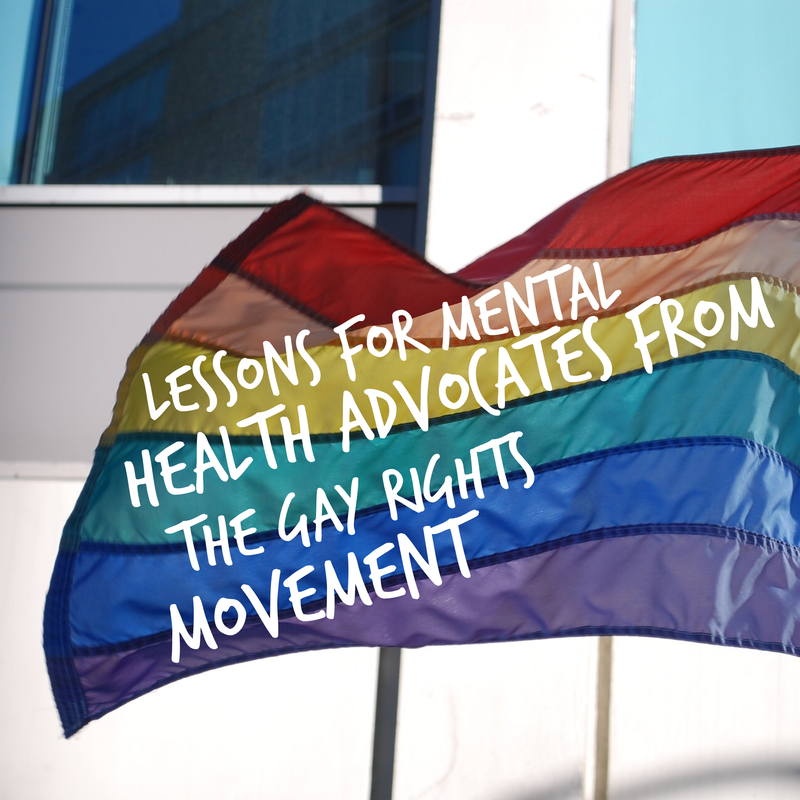
This is not a political post…….they are not allowed on our platform and I don’t write them.
After watching the reaction in the United States to the Supreme Court’s ruling on gay marriage, I feel that there is an opportunity for the mental health community and our advocacy efforts. The Reaction The reaction from the news media, government, corporations, celebrities and social media has been astonishing.
Could you have imagined any of this a decade ago? What happened and what can we learn from this massive paradigm shift to help people struggling with mental illness? The Math The Center for Disease Control (CDC) issued statistics in 2014 (Link) finding that 96.6% of adults over the age of 18 identified as straight. This suggests that about 3.4% of the population was directly affected by the ruling. The National Alliance on Mental Illness tells us that 1 in 4 adults are effected by mental illness. Said differently, over seven times the number of people are battling mental illness than had a vested interest in the right to marriage equality. A simple Google search comparing results for each causes efforts tells the same story. Gay rights advocacy returned 17.9 million results verse 66.3 million for mental health advocacy.
The Implications
There are thousands of fantastic people and organizations working in the mental health community. But, the reality is we are not getting the same results as those working for gay rights. Why is that? I have never wanted to ‘fight stigma’ with the ConquerWorry.org platform. Based on my experience it just appeared futile as someone is going to think what they want to think. I am starting to change my thoughts on that narrative. Last year I had an opportunity to interview Dr. Jon Rottenberg on the Conquer Worry Podcast. He is the author of The Depths: The Evolutionary Origins of the Depression Epidemic. He suggested that the youth of today are open to social change more than any other generation. Jon went on to say that could have long term implications for the mental health community as it relates to stigma. After seeing the reaction to the Supreme Courts ruling, I have to agree and the power of grassroots stigma fighting are apparent. Consider that A WSJ/NBC survey in March found that 59% of Americans support same-sex marriage while in 2004 that number was only 30%. A 100% increase in 11 years! The Goal Our mission at ConquerWorry.org has been to create awareness of the resource that are available to those who struggle with their mental health. The first step to recovery is getting professional help and it is a step that too few people actually take. The consequences of not getting help can be dire. Imagine if corporations, governments, celebrities and social media platforms were actively advocating to reduce the stigma for those struggling with their mental health? What type of results would we see? How many lives could be saved or changed for the better? Let’s get to work. Jay Coulter 
Jay Coulter is a Mental Health Advocate, Professional Speaker, Blogger, Podcast Producer and founder of ConquerWorry.org. The platform's mission is to create awareness of the resources that are available to those who struggle with their mental health. Conquer Worry has over 100,000 social media followers and we would love to have you in our community. The ConquerWorry.org community can be found online and on most social media platforms.
TWITTER | FACEBOOK | INSTAGRAM | PINTEREST | MEDIUM The Conquer Worry Podcast with Jay Coulter can be found on iTunes |YouTube | Stitcher | TuneIn Radio |
Build Your Action Based Stress Reduction System
Popular PodcastsOlympian Suzy Favor Hamilton - From Fame to Prostitution to Advocacy
Hall of Fame Basketball Star Chamique Holdsclaw on Mental Resilience Diana Nightingale on her husband Earl Nightingale's Principles for Mental Health Success JoAnn Buttaro on Date Rape & PTSD Survival Story: Its Never Too Late Gabe Howard on BiPolar Advocacy Phil Fulmer on Teen Suicide Prison, Bipolar and Mania with Andy Behrman Columbia Univeristy's Dr. Rynn on OCD Archives
March 2018
Categories
All
|

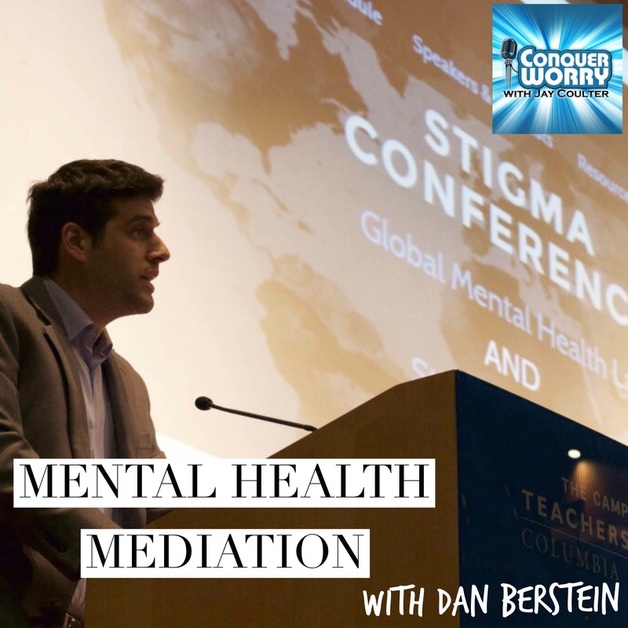
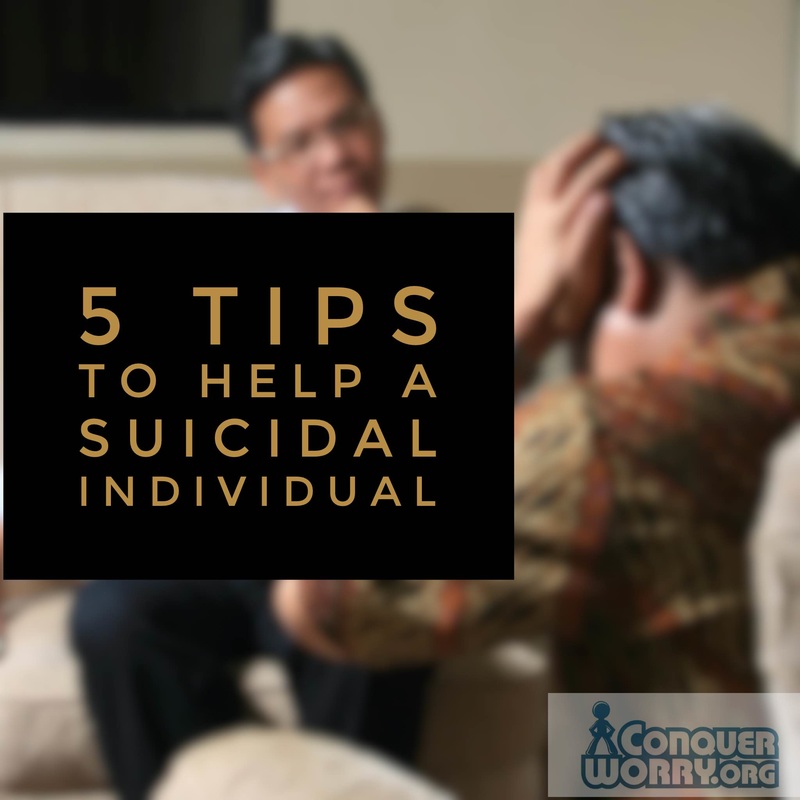
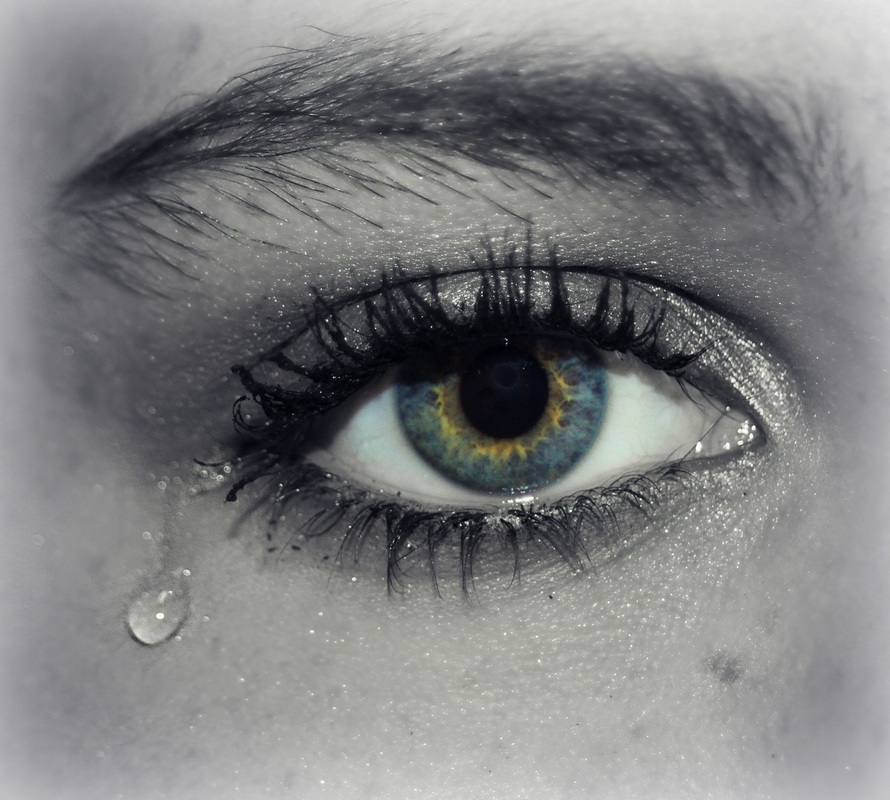
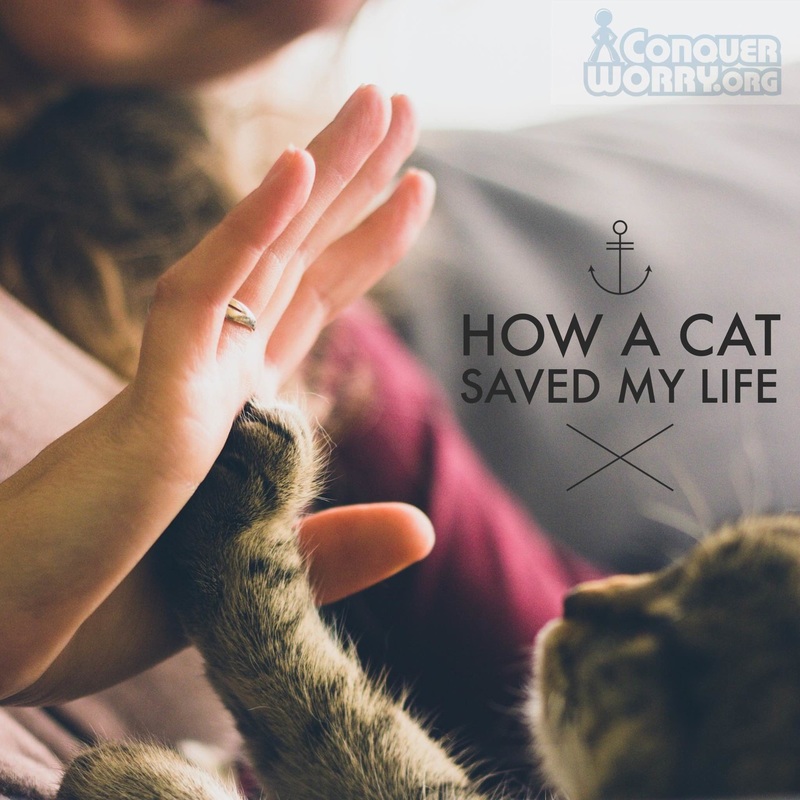


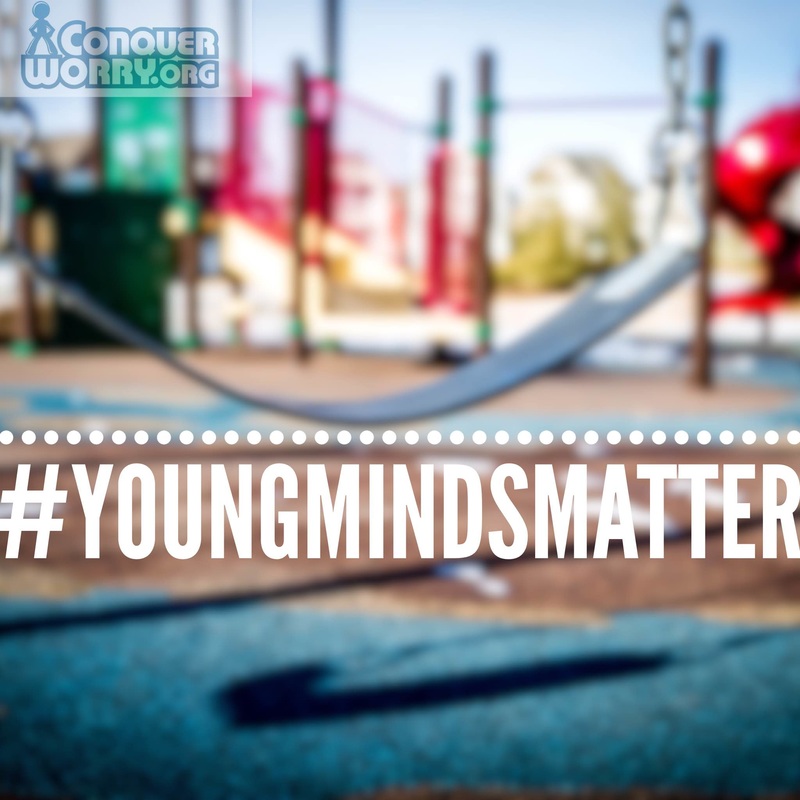
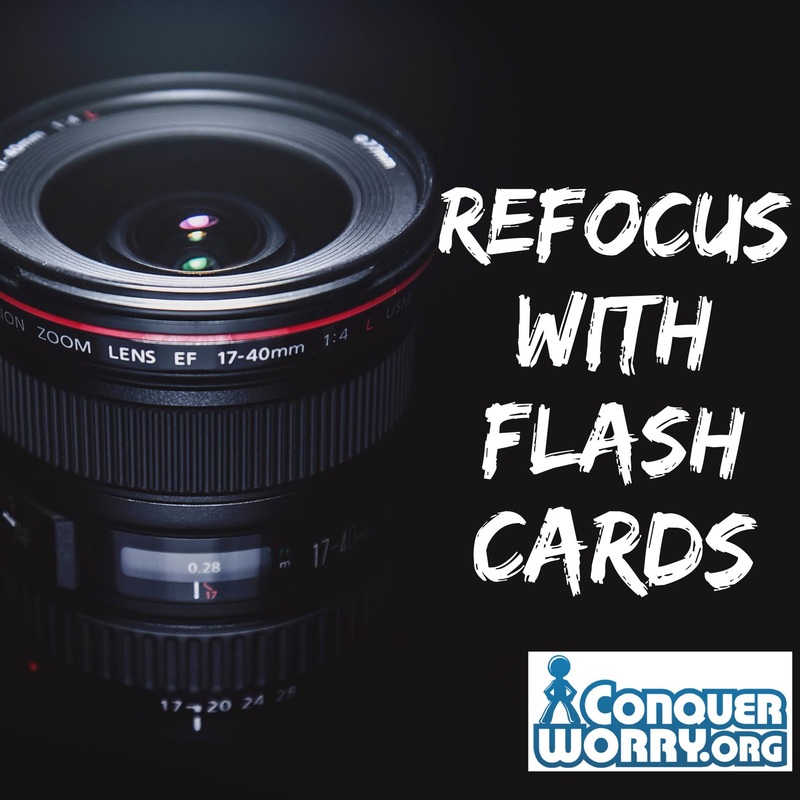
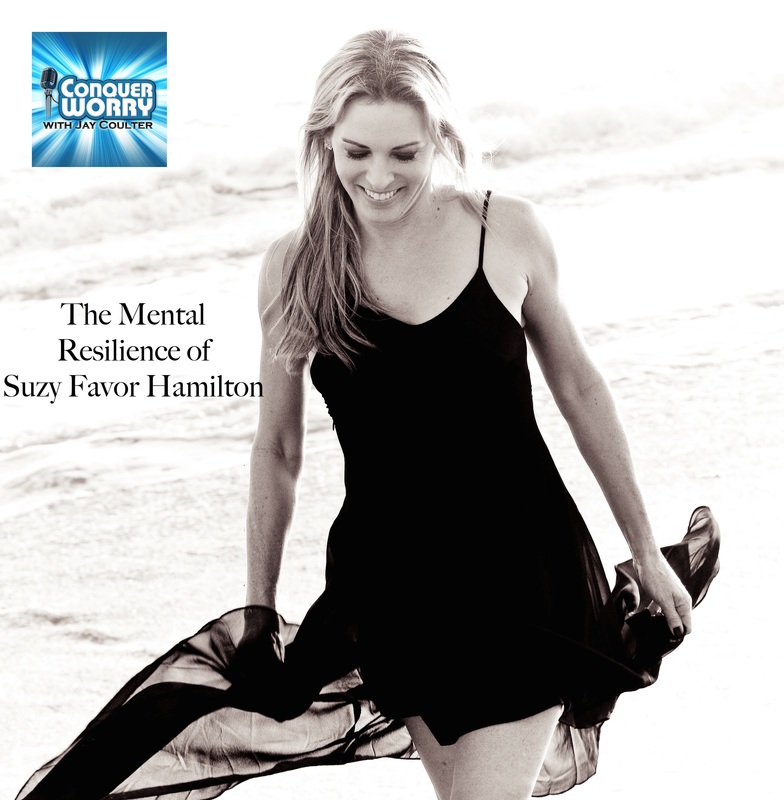
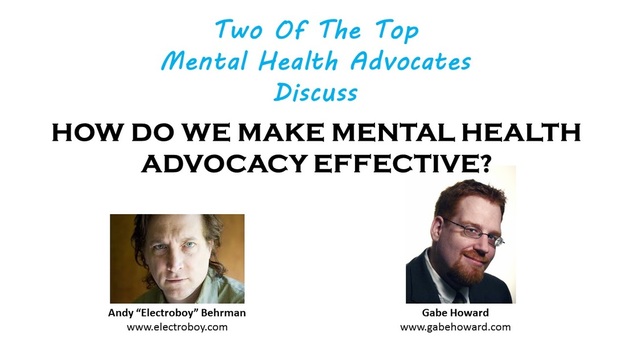
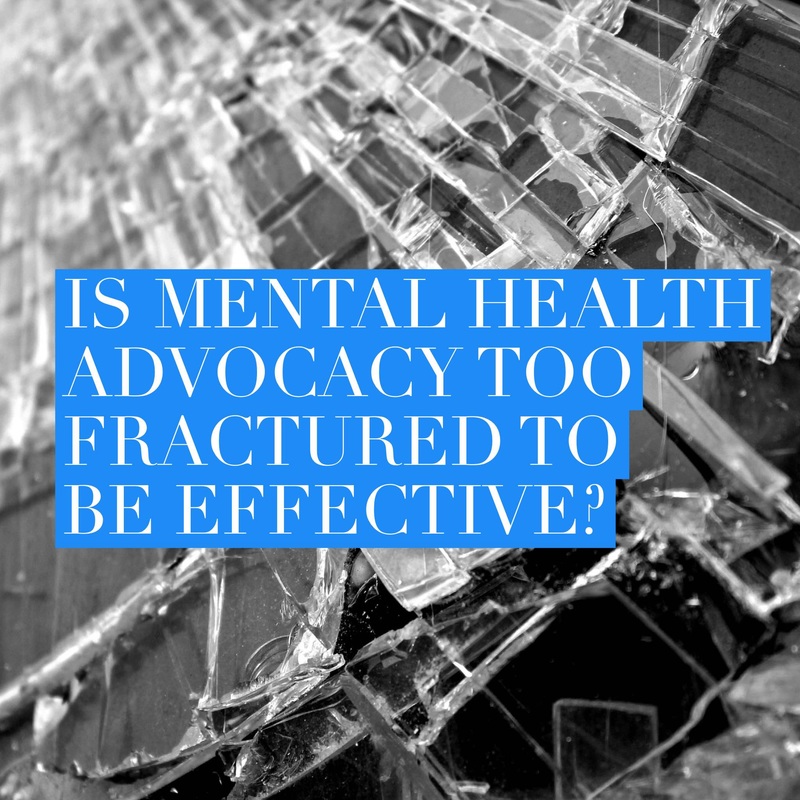
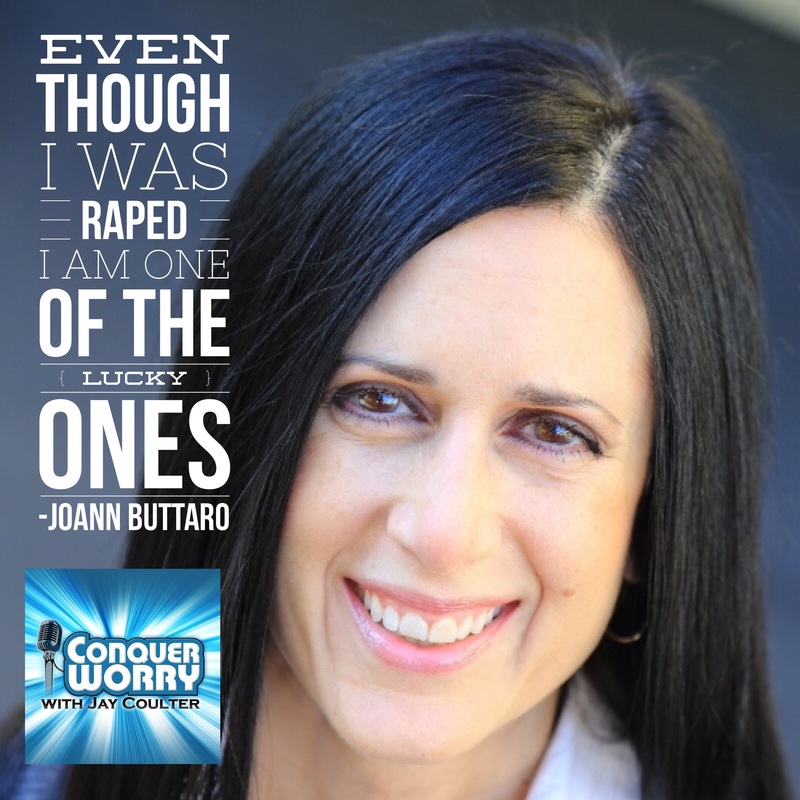
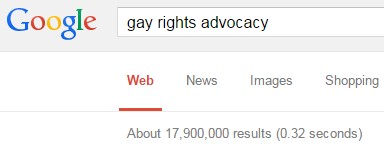
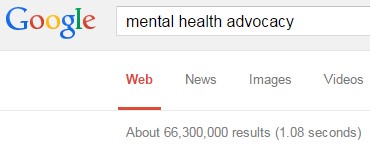

 RSS Feed
RSS Feed





